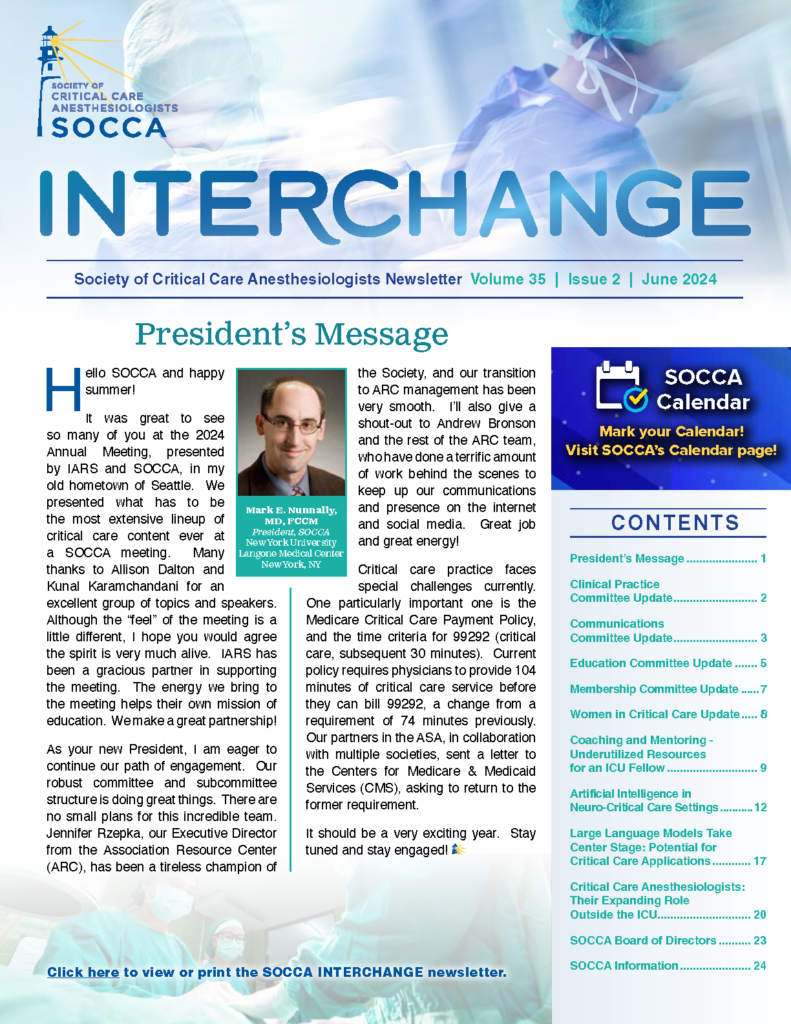Burnout: No Easy Answers in a Post-Pandemic World
As I sit here writing a piece about work-life balance for women critical care physicians, I feel compelled to paint the picture of my current situation: in-house on call at 9pm on a Friday night, an AirPod in one ear teleconferencing my children to say goodnight, strapped into a portable breast pump, eating the fastest thing I could get from the hospital cafeteria (which is invariably fried), all while typing away at this piece in the physician work room. I am awash in irony. Is this the image of the prototypical woman intensivist? Not at all. Am I currently burned out? Actually, I don’t think so. Have I been burned out at some point during my medical career thus far? Definitely. How do I refine my career plan to achieve work-life balance and sustainability for a satisfying and productive professional career? Unclear, check back later.
We are over two years into the COVID-19 pandemic and while we are largely out of quarantine and back out in the world, stress and burnout continue to play major roles in the intensive care unit, particularly for women intensivists. A look at the Medscape 2022 Physician Burnout & Depression and the Physician Lifestyle & Happiness Reports put into numbers what we all probably intuitively expected: With over 10,000 respondents to both surveys (38% women) across 29 specialties, burnout in 2021 continued to increase with 47% of respondents reporting burnout vs. 42% in 2020. Of these physicians experiencing burnout, the majority were women (56% vs. 41%). More concerning yet, critical care was the second highest specialty reporting burnout at 56%. So, for all of the women critical care physicians out there feeling tired and burned out – take solace that you are not alone.
Women were over twice as likely to feel “very conflicted” as parents due to work demands during the last year, and indeed many women left the workforce entirely to assume childcare and homeschooling responsibilities. On top of that, “Mom guilt” (the feeling of not doing enough as a parent, or making incorrect parenting decisions) during time outside of our professional roles compounded this stress. Not only do we feel stressed as parents, but 68% of respondents also reported that burnout had affected their relationships with their spouse or partner. We feel this imbalance so much so that 60% of female respondents reported they would be likely to take a pay cut for better work-life balance.
While these trends have made headlines in the setting of the pandemic, women intensivists have long felt the societal pressure to not only be a great physician/researcher/educator/leader, but also be outstanding in our roles outside of the hospital (as a parent, wife/partner, etc.).
What do we do about it? How do we balance this expectation when it is clear that burnout is running rampant among our ranks? Maybe more importantly, how do we become role models and agents of change for the future generations of medical students, residents, and fellows who are interested in our specialty but concerned about a sustainable professional career?
The simple answers for our personal wellbeing (spend time with family & friends, participate in hobbies, eat healthy and get plenty of sleep and exercise) are all represented in the Medscape reports. But the truth is there isn’t an easy answer to how we support women who are disproportionately experiencing higher rates of stress and burnout. As we define our “new normal” in the post-pandemic world, we have the opportunity to emphasize wellness, health, work-life balance and burnout prevention systemically, particularly for the support of women critical care physicians.
So, tomorrow I will spend time with my family, we will go hiking and enjoy the sunshine. I will be proud of my efforts in the hospital, honored at the opportunity to provide critical care for my patients, and proud to educate and inspire the next generation of residents and fellows.
References
1-Baggett SM, Martin KL. “Medscape Physician Lifestyle & Happiness Report 2022,” Medscape, 1/14/2022. Accessed 8/6/2022. https://www.medscape.com/slideshow/2022-lifestyle-happiness-6014665
2-Kane L. “Physician Burnout & Depression Report 2022: Stress, Anxiety and Anger,” Medscape, 1/21/2022. Accessed 8/6/2022. https://www.medscape.com/slideshow/2022-lifestyle-burnout-6014664




































